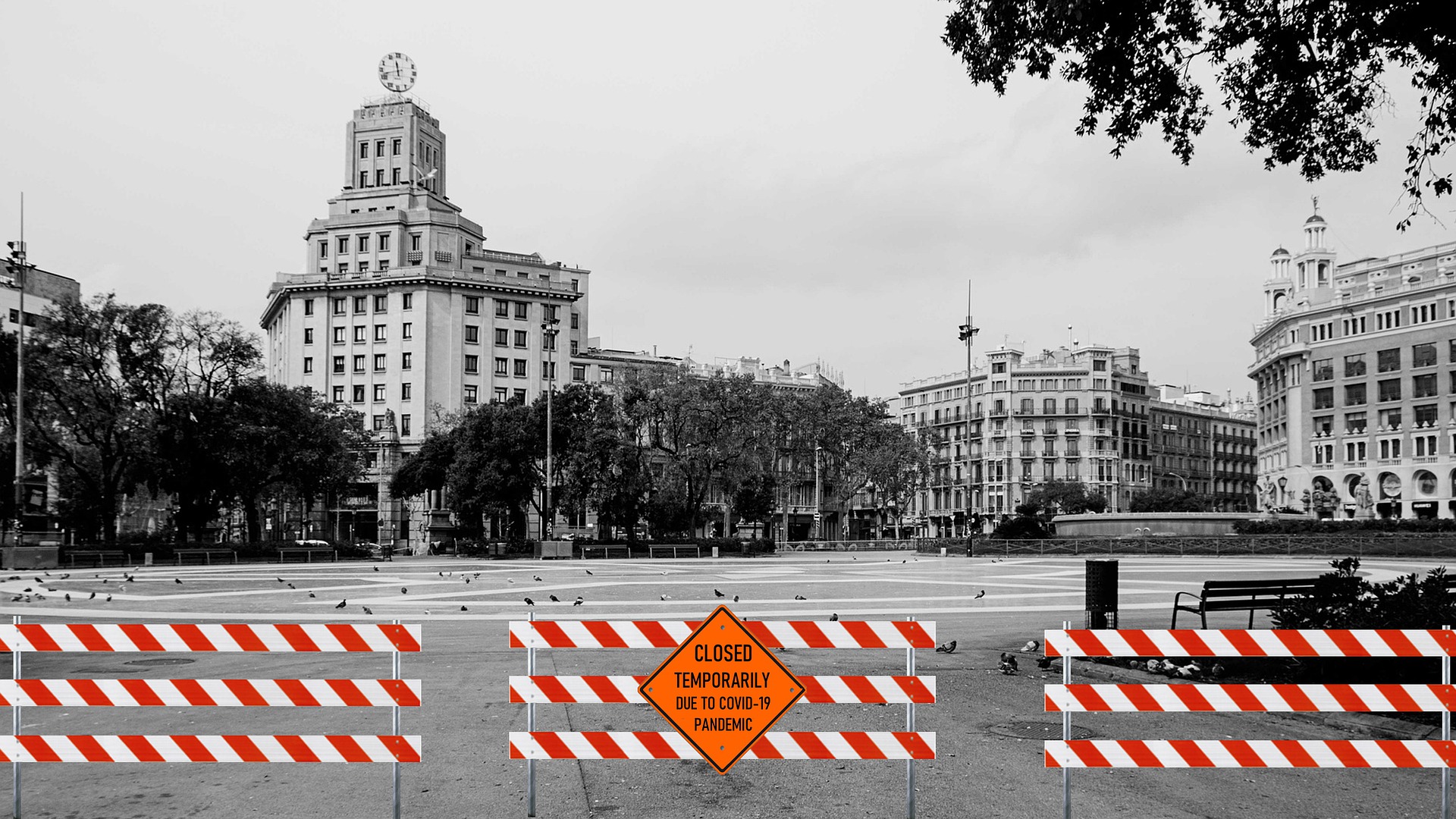First came reports of a new virus from China. Just days before February it had crept its way into the UK population. Soon, the World Health Organisation (WHO) had declared a global health emergency – and in no time at all the COVID-19 virus has pulled shutters down on the world.
The UK has certainly been no stranger to the stay at home message, but even as we each do our bit to prevent the spread of the virus, businesses are shouldering a huge financial burden. Of course, it makes sense that retailers (like anyone else) have to do their bit to keep us all safe, but what makes this situation worse are the seemingly arbitrary pandemic regulations that have been pursued across Britain.
As the British Retail Consortium (BRC) rallies against lockdown rules, here’s a closer look at the issues arising out of business pandemic guidelines.
What are the rules for UK businesses during COVID-19?
Despite British Prime Minister Boris Johnson’s call for a “four-nation” to pandemic management, the lockdown rules that apply to UK businesses very much depend on which area you are situated in. England, for instance, went into a second period of lockdown on Thursday 5 November until at least Wednesday 2 December. During this time shops that are deemed ‘non-essential’ must close, whilst those who are allowed to keep their doors open must stick to a strict regimen of social distancing rules.
Contrastingly, businesses in Wales have had a similar treatment under their two-week ‘firebreak’ lockdown but were able to reopen from Monday 9 November. A comparable situation has been seen in Northern Ireland, where a so-called ‘circuit-breaker’ lockdown will prevent the full reopening of hospitality businesses up until 27 November.
Yet another regime still can be found by looking north of the English border to Scotland. A three-tier system has been introduced there, yet shops can remain open regardless of the tier that applies to their local authority area.
Whilst the intentions of those in power may be good, the muddled approach to pandemic business regulations seems set to confuse firms that are already struggling to cope amidst reduced footfall and economic uncertainty.
Essential or not?
Aside from the patchwork of COVID-19 regulations, perhaps the most egregious stance has been taken when deciding whether or not certain retailers are ‘essential’ or not. With little in the way of concrete guidance for the government, issues have presented themselves where supermarkets have been permitted to continue selling arguably ‘non-essential’ homewares simply by virtue of stocking them near to other clearly essential products.
The problem goes beyond the reported bluster and uncertainty caused by taped off products in Welsh supermarkets, though. Few would disagree that grocery products and medication are essential during the pandemic, but the waters become muddier beyond such evidently important items.
It stands to reason that some products are more widely considered as essential than others, but who can really determine what another consumer desperately needs at any given time. From kitchenware to office equipment and electronics, almost any item could be considered an essential if you really do need it. According to Tom Ironside, director of business and regulations at the BRC, politicians have created “arbitrary lines over what is and isn’t an ‘essential’ retailer.”
When looked at alone, it might not seem all that important that some people can’t buy new pots and pans, for instance. But when you look at the bigger picture, cracks begin to show in the government’s plans. With estimates suggesting that closed shops lose out on £2 billion each week, it’s easier to understand exactly why we need our shops open. Without them, the nation may find itself in a much stickier financial situation than it’s already in.
A new way forward for business
The total of these varied lockdown measures is anything but a “four-nation” approach, and that spells trouble for the businesses that are struggling to stay afloat whilst propping up the UK’s ailing economy.
As the BRC’s Chief Executive, Helen Dickinson OBE, puts it:
“many retailers had finally thought that they were finding their footing. The new lockdown in England will now throw away this progress as we enter the crucial Christmas trading period”.
With these sentiments no doubt echoed across the UK’s retail landscape, businesses can only hope that the government will be better equipped to deal with any future health crisis in a way that does not interfere with the legitimate and safe operation of shops.
Until such time, however, retailers may just have no option but to take matters into their own hands. Whilst the pandemic has all but crushed the high street, ecommerce is now outperforming even the most buoyant of traditional sales channels – and opportunity abounds for those businesses who can take advantage of the public’s exodus to internet shopping.
Among the best ways to take advantage of this consumer trend is to invest in a secure and reliable eCommerce payment gateway. As an online payment system, it could scarcely be easier for businesses to continue taking payments from their customers during the pandemic and beyond.
With solutions like this in place, businesses can keep trading online regardless of ineffective lockdown measures and mismatched restrictions. As ever the retail industry is innovating, and even there are ways for businesses to fight back and survive, even if they can’t return to full service just yet.



 Bitcoin
Bitcoin  Ethereum
Ethereum  Tether
Tether  XRP
XRP  USDC
USDC  Solana
Solana  TRON
TRON  Cardano
Cardano  Lido Staked Ether
Lido Staked Ether  Avalanche
Avalanche  Toncoin
Toncoin